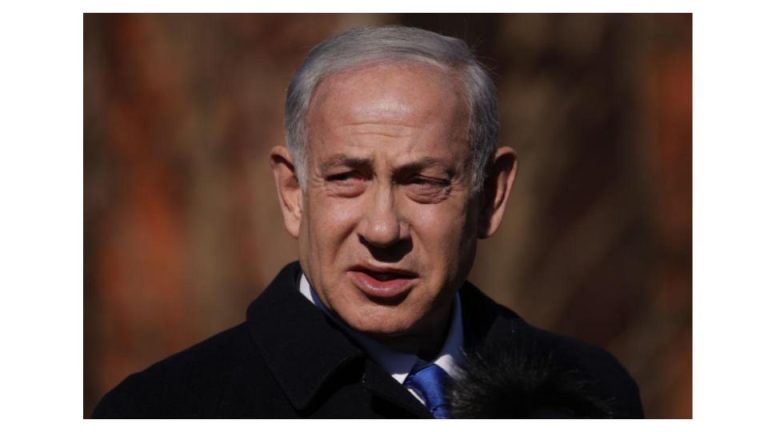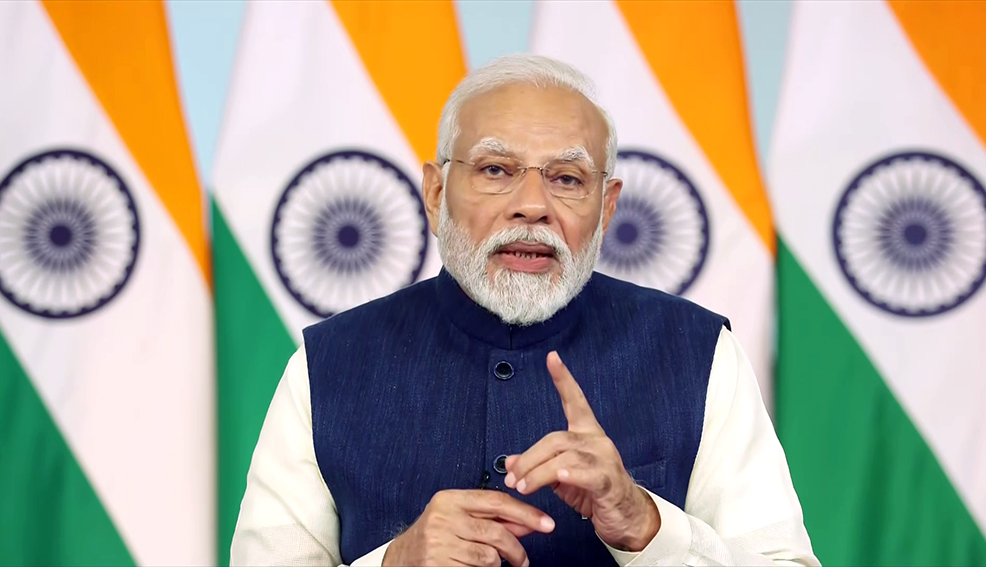sraeli Prime Minister Benjamin Netanyahu promised that arch foe Iran would pay for its missile attack against Israel on Tuesday, while Tehran said any retaliation would be met with “vast destruction”, raising fears of a wider war.
As Washington expressed full backing for its longtime ally Israel, Iran’s armed forces said direct intervention by Israel’s supporters against Tehran would provoke a “strong attack” from Iran on their “bases and interests” in the region.
Oil prices shot up 5% on fears of a wider war between the two arch enemies, and the U.N. Security Council scheduled a meeting on the Middle East for Wednesday.
“Iran made a big mistake tonight – and it will pay for it,” Netanyahu said at the outset of a political-security meeting, according to a statement.
Iran’s Revolutionary Guard Corps said the assault was in retaliation for Israeli killings of militant leaders and aggression in Lebanon against the Iran-backed armed movement Hezbollah and in Gaza.
Fears that Iran and the U.S. would be drawn into a regional war have risen with Israel’s intensifying assault on Lebanon in the past two weeks, including the start of a ground operation there on Monday, and its year-old conflict in the Gaza Strip.
In its attack on Tuesday, Iran fired more than 180 ballistic missiles at Israel, Israel said. Alarms sounded across Israel and explosions could be heard in Jerusalem and the Jordan River valley. Israelis piled into bomb shelters and reporters on state television lay flat on the ground during live broadcasts.
Iran’s forces used hypersonic Fattah missiles for the first time, and 90% of its missiles successfully hit their targets in Israel, the Revolutionary Guards said.
Israeli air defences were activated and most missiles were intercepted “by Israel and a defensive coalition led by the United States,” Israeli Rear Admiral Daniel Hagari said in a video on X, adding: “Iran’s attack is a severe and dangerous escalation.”
Central Israel received “a small number” of hits and there were other strikes in southern Israel, he said. The Israeli military published video of a school in the central city of Gadera that was heavily damaged by an Iranian missile.
No injuries were reported in Israel, but one man was killed in the occupied West Bank, authorities there said.
U.S. Navy warships fired about a dozen interceptors against Iranian missiles headed toward Israel, the Pentagon said.
U.S. President Joe Biden expressed full U.S. support for Israel and described Iran’s attack as “ineffective.” He said there was an active discussion about how Israel would respond, and he would confer with Netanyahu.
Vice President Kamala Harris, the Democratic candidate for U.S. president, backed Biden’s stance and said the U.S. would not hesitate to defend its interests against Iran.
Israel vowed consequences for the onslaught.
“We will act. Iran will soon feel the consequences of their actions. The response will be painful,” Israel’s U.N. Ambassador Danny Danon told reporters.
The White House similarly promised “severe consequences” for Iran and spokesman Jake Sullivan told a Washington briefing the U.S. would “work with Israel to make that the case.”
Sullivan did not specify what those consequences might be, but he stopped short of urging restraint by Israel as the U.S. did in April when Iran carried out a drone and missile attack on Israel. The Pentagon said Tuesday’s airstrikes were about twice the size of April’s assault.
Any Israeli response to Tuesday’s missile attack would be met with “vast destruction” of Israeli infrastructure, Iran’s General Staff of the Armed Forces said in a statement carried by state media, also promising to target regional assets of any Israeli ally that got involved.
Iran’s foreign ministry said its operation was defensive and only directed at Israeli military and security facilities. Earlier, Iran’s state news agency said Tehran targeted three Israeli military bases. Iran urged U.N. Security Council action.
U.N. Secretary-General Antonio Guterres condemned what he called “escalation after escalation”, saying: “This must stop. We absolutely need a ceasefire.”
EU foreign policy chief Josep Borrell also called for an immediate regional ceasefire. “The dangerous cycle of attacks and retaliation risks … spiralling out of control,” he posted on X.
ESCALATION IN LEBANON
Iran had vowed to retaliate following Israeli strikes that killed the top leadership of its ally Hezbollah in Lebanon, including the group’s leader Hassan Nasrallah, a towering figure in Iran’s network of fighters across the region.
Hamas, the Iran-backed militant group in Gaza, praised the Iranian missile strikes, saying they avenged Israeli assassinations of three militant leaders, including Nasrallah.
Palestinians in the Gaza Strip, locked in nearly a year of war, celebrated as they watched dozens of rockets en route to Israel. Some of those rockets fell in the Palestinian enclave after being intercepted by Israel but caused no deaths, witnesses said.
In Beirut, Israeli strikes killed the commander of the Imam Hussein division, Israel’s military said, referring to a Hezbollah-linked group based in Syria.
Lebanon’s health ministry said 55 were killed and 156 wounded in Israeli attacks on Tuesday.
Israel said overnight that its troops had launched ground raids into Lebanon, though it described the forays as limited.
Nearly 1,900 people have been killed and more than 9,000 wounded in Lebanon in almost a year of cross-border fighting, most in the past two weeks, according to Lebanese government statistics on Tuesday.
But a ground campaign into Lebanon for the first time in 18 years pitting Israeli soldiers against Hezbollah, Iran’s best-armed proxy force in the Middle East, would be a major regional escalation.



















